My attention was recently drawn to an article written by psychology researchers at the University of Kent. I have exchanged a few tweets with a Ph.D researcher who directed me to the article. It appears the researchers at the University of Kent made a genuine attempt to understand the psychology of so called “conspiracy theorists.” Yet, for a number of reasons we are about to explore, the article and their research is fundamentally flawed.
The “Secret Plot” Canard
The root cause of these errors is revealed in the opening paragraph of the abstract.
“What psychological factors drive the popularity of conspiracy theories, which explain important events as secret plots by powerful and malevolent groups?”
 This notion that conspiracy theorists, who we will refer to as “people”, seek to understand “secret plots” is ubiquitous across academic studies examining the psychology of those labelled with the term. In conversation with the woman, who kindly highlighted the article, she repeatedly stated that the psychologist’s consensus was that ‘belief’ in conspiracy theory was the product of a ‘type’ of malformed psychology.
This notion that conspiracy theorists, who we will refer to as “people”, seek to understand “secret plots” is ubiquitous across academic studies examining the psychology of those labelled with the term. In conversation with the woman, who kindly highlighted the article, she repeatedly stated that the psychologist’s consensus was that ‘belief’ in conspiracy theory was the product of a ‘type’ of malformed psychology.
Ignoring that consensus is not evidence, conspiracy theory is not a belief system. Just because you think the official account of 9/11 is demonstrably false, it doesn’t mean you also believe the moon landings were faked or the Earth is flat. This claim of a unifying “belief system” indicates the cognitive dissonance of the researchers, not to mention a considerable degree of confusion.
No one can know, other than the conspirators, what course a “secret plot” takes. It’s a secret. Researching a “secret plot” is just about the most futile exercise you could ever undertake. Which is why nobody does it.
Generally, the people labelled “conspiracy theorists” are interested in real plots, that actually exist. For example Operation Gladio was a 30+ year long NATO false flag terrorist conspiracy, operating throughout Europe between the late 50’s to late 1980’s. Eventually fully disclosed in the European courts, NATO state orchestrated false flag terrorism is not “a secret.” It is historical fact.
If you are aware of this fact it is not unreasonable to ask questions of other official accounts of terrorist attacks. An awareness and understanding of the fact that state sponsored terrorism is quite common obviously leads to reasonable suspicions. There is no reason to search for any underpinning psychology. An informed opinion is all that’s required to be sceptical of state narratives about terrorist attacks.
This does not mean every terrorist attack is a state sponsored false flag, only that some could be. Assuming an attack is a manipulated terror event would be to jump to conclusions. As would ruling out that possibility.
All that matters, in the aftermath, is that the evidence is thoroughly examined. Especially if the planned response is more violence, as is invariably the case. However, those who ask questions about terrorist attacks, particularly if they highlight any evidence which contradicts the official state account, are always vilified as “conspiracy theorists.”
This label is usually sufficient for most people to dismiss the sceptics and the evidence they highlight. Presumably because they have no knowledge of relevant historical facts, such as Operation Gladio or the Lavon Affair.
Use of the “conspiracy theory” canard is a long established method of discrediting anyone who questions state narratives. A techniques first formally suggested in 1967 ( Document 1035 – 960 ) by the CIA to marginalise anyone who doubted the veracity of the Warren Commission Report into the Kennedy assassination investigation.
To claim that people endeavour to understand “secret plots” reveals the researchers assumption that evidence, exposing these malign activities, is ultimately unknowable. It assumes the plots don’t exist and denies all proof that they do. The next illogical leap infers the people looking for, or pointing towards, evidence are deluded; that they suffer from some sort of mental aberration.
The Psychology of the Psychologists

Cognitive dissonance is apparently driving the psychologists search for “conspiratorial thinking.” For example the political scientist Joseph Uscinski writes:
“…conspiracy beliefs are likely to occur when individuals have a worldview in which conspiracies dictate events……Perhaps the reason is that conspiracy theories are less about specific details and more about broader conceptions of power: who has it and what are they doing with it?”
Uscinski’s article is well balanced and informative, please take the time to read it. However, this notion that conspiracy theories in general lack “specific detail” is speculative conjecture. Often the identified conspiracies are detailed and complex. For example, it took a four year study by the Department of Civil Engineering and the University of Alaska Fairbanks to prove the official 9/11 account cannot be true.
The prevailing ‘belief system’ of the social scientists, psychologists in this case, is that what they call “conspiracy theories” are all false. In Dead and Alive: Beliefs in Contradictory Conspiracy Theories (Wood, Douglas & Sutton, 2012) they write:
“For instance, someone who believes that the American government was behind the 9/11 attacks is very likely to also believe that Princess Diana was deliberately assassinated. One proposed explanation for this connection is that beliefs in conspiracy theories somehow support one another (Goertzel, 1994). Even though the perpetrators may be different in each case, the fact that one massive, sinister conspiracy could be successfully executed in near-perfect secrecy suggests that many such plots are possible. “
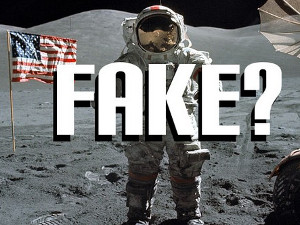
What we are confronted with is the “world view” of the researchers. They ‘imagine’ secrecy, where none exists. This false assumption is evidently based upon their own belief system.
They assume a ‘massive, sinister conspiracy’ is impossible because ‘perfect secrecy’ for such large scale plots is implausible. For them, the idea that the 9/11 was a “conspiracy” has to be a “secret” because otherwise they would need to question the event themselves. Something which they are neither willing nor seemingly able to do.
The psychologists appear to accept all official explanations without pause. The question is why? If they believe the ‘official account’ is automatically credible, without considering the evidence, then they are committing the logical fallacy of Appeal To Authority.
Objectively, there is no more reason to believe the state’s account of an event than any other. There are, in fact, very good historical reasons for some initial scepticism. It all depends on the evidence.
Anyone can justifiably question both 9/11 and the death of Princess Diana. In neither case does this mean there are definitive answers, fully accounting for every aspect of those events. Nonetheless, while official accounts utterly fail to address corroborated evidence which brings both narratives into question, doubt remains entirely reasonable.
For these researchers to assume, without evidence, that this is symptomatic of an unhinged psychology, is simply a reflection of their own confirmation bias and beliefs. Unlike many so called conspiracy theorists, there is no basis in fact for their “beliefs.”
Wood, Douglas & Sutton undertook supposed experiments to try to identify the unifying, common psychology which they suspected to be common to all those they labelled conspiracy theorists. However, because these experiments are predicated upon unproven assumptions the results are largely meaningless. Their methodology involved setting a series of questions, in two separate studies, to identify the claimed overarching psychology, or “higher order beliefs,”of the people they labelled conpiracists.
The subjects were each given a set of questions with a Likert-type scale (1 -strongly dis-agree, 7 – strongly agree). Some of the questions were contradictory. The first study asked the subjects to consider both that Diana was murdered, by some method or actor, and the suggestion that she faked her own death. In the second, that Ossama Bin Laden both died prior to his alleged shooting by Navy SEALS and that he is alive in captivity.

In the Diana study, the psychologists claimed that agreeing to some degree both that Diana was murdered and that she faked her own death showed that conspiracy theorists could believe two mutually exclusive “conspiracies” at the same time. In the Bin Laden controlled study they decided subjects both believed he died, prior to the assault on his house, and survived. Thus, for some unfathomable reason, the researchers felt they were able to conclude:
“While it has been known for some time that belief in one conspiracy theory appears to be associated with belief in others,only now do we know that this can even apply to conspiracy theories that are mutually contradictory. This finding supports our contention that the monological nature of conspiracism (Goertzel, 1994; Swami et al., 2010, 2011) is driven not by conspiracy theories directly supporting one another but by the coherence of each theory with higher-order beliefs that support the idea of conspiracy in general.”
This not only states the obvious, the postulated conclusion is not backed up by their own test results. If the the subjects were asked to consider exclusivity, and then chose contradictory responses, the researchers may have had a point, but they weren’t. They were only asked to express a level of agreement for each question and were not asked to consider if those responses were mutually exclusive.
We are told that Bin Laden was assassinated in his house. No video or photographic evidence has ever been produced, no witness testimony has emerged, other than the hearsay of politicians, and there isn’t even any evidence of a body as he was allegedly buried at sea. There is nothing to support the official narrative. Therefore, there is no justifiable reason to find the official narrative credible. Unless you simply believe, without any evidence, whatever politicians tell you.
If you doubt the Bin Laden claims, all you know is that the state’s depiction of events lacks evidence. You don’t know what happened but find the state narrative unsubstantiated. Therefore a whole range of possibilities emerge, some with stronger evidence than others. Including, for instance, both his escape and his earlier death in 2001. So it is perfectly legitimate to strongly agree that he died in 2001 and agree somewhat that he survived. Nothing can be ruled out. There is insufficient evidence.
The researchers did not ask the subjects if they believed both suggested conclusions were possible contemporaneously. To claim this proves the ‘monological nature of conspiracism’ is really quite daft. It isn’t supported by evidence, lacks concordance, and isn’t remotely ‘scientific’. All it demonstrates is that some subjects didn’t believe the official narrative and, without any evidence, why would they? The “higher order belief” allegedly identified wasn’t a rigid commitment to conspiracism it was nothing more than doubt founded in a critical appraisal of the available evidence.
Awareness of real conspiracies, such as Operation Gladio or Iran Contra, increases the likelihood of you being open to other possible conspiracies. This is the same effect you would expect for any other formative experience or founding knowledge.
If you discovered a colleague had lied to you, would you be more or less likely to believe them the next time? Does knowledge of their previous lies make you more or less sceptical? To suggest this has anything to say about your underlying psychology is nonsense. Yet that is the claim made in this paper.
Belief can be defined as: “the feeling of being certain that something exists or is true.” Broadly, the academic research looking at the psychology of the people they label as conspiracy theorist is based upon the psychologist’s belief that conspiracy itself is implausible.
The legal definition of a fact is, “…a thing done; an action performed or an Incident transpiring; an event or circumstance; an actual occurrence.” It appears, in much of this research, the psychologists are tending towards belief while disregarding the facts.
The people who have been highlighting evidence which shows the alleged 2018 Douma chemical weapons attack was another false flag have proof to back up their argument. To dismiss the evidence because you believe it to be a ‘conspiracy theory’ is both illogical and meaningless. I make no allegation that these academics are deliberately avoiding evidence only that they, like millions of others, don’t know it exists. That being said, while this may be understandable, science based in ignorance is useless nonetheless.
Logical Fallacies Don’t Make Good Science
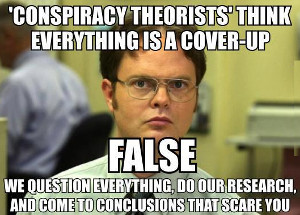
The University of Kent article is based upon a number of logical fallacies. The first is the Strawman. It misrepresents, or fabricates, the arguments offered by people they call conspiracy theorists. The social scientists claim the conspiracy theories:
“…..are speculative in that they posit actions that are hidden from public scrutiny, complex in that they postulate the coordination of multiple actors, and resistant to falsification in that they postulate that conspirators use stealth and disinformation to cover up their actions—implying that people who try to debunk conspiracy theories may, themselves, be part of the conspiracy”
Actions hidden from public scrutiny are extremely common. The evidence proving this fact doesn’t evaporate because the majority aren’t aware of it. All it means is that it isn’t reported or, if it is, insufficient numbers of people have read, seen or heard the report for it to be widely known as ‘a fact.’ It doesn’t change the fact. The evidence, and only the evidence, determine facts.
The list of actions, ‘hidden from public scrutiny,’ that have eventually come into the light, is extensive. People, indulging in independent research exposed many. These include the Iran Contra affair, the unauthorised aerial spraying of civilian populations, numerous government sponsored terrorist attacks and false flag operations; the West’s long history of supporting Islamist extremest via Operation Cyclone, Operation Timber Sycamore, and many other facts “hidden from scrutiny”.
That these ‘actions’ are covered up doesn’t make research into the evidence which exposes them speculative. The claim that is does is false. It’s a strawman argument.
If you want to familiarise yourself with the evidence, you must look beyond official narratives and mainstream media reports. All of the evidence cited at Iain Davis is in the public domain. Very little of it is reported by the mainstream media and the vast majority of people don’t know it exists. Hence this blog.
The Kent team have seemingly made the mistake of believing that unless the evidence is reported by the BBC or CNN, it doesn’t exist. Therefore, in their academic opinion, the people who doubt the infallibility of the mainstream media are either a poorly educated, or thick “conspiracy theorists.”
This leads us to their second logical fallacy, liberally sprinkled throughout psychological research into the thought processes of people social scientists identify as conspiracy theorists, Personal Incredulity. The researchers simply cannot believe that ‘complex’ plots involving ‘multiple actors’ exist. Despite the fact, even for the most incurious, the evidence overwhelmingly demonstrates they do. In fact, as opposed to the unsubstantiated denials of the University of Kent researchers, the coordination of multiple components is a basic prerequisite of any conspiracy, save for the most rudimentary.
Two blokes sitting in a pub planning to rob the fruit machine requires neither complexity nor multiple actors. Whereas funding a covert operation, by smuggling tons of drugs across international borders, to circumvent international arms embargoes in order to clandestinely purchase and supply weapons to terrorist groups, definitely requires considerable ‘complexity’ and numerous ‘actors.’ Both are conspiracies and both can be proven by examining the evidence.

International, large scale conspiracies, such as Iran Contra, necessitate both complexity and multiple actors. Just because you can’t believe such events ever occur, which is replete in the Kent researchers’ analysis, it doesn’t mean that they don’t.
Some familiarity with the evidence will render this abundantly clear. However, that evidence is simply denied by the Kent team. Leaving them with no option but to view people, who do look at the evidence, as woolly headed ‘conspiracy theorists.’ Primarily because the Kent researchers can’t overcome their own personal incredulity,
This became transparent when I tried to share some evidence with the Ph.D researcher who directed me to the article. Her response was that she would not even consider it because it was a ‘conspiracy theory.’
This kind of circular thinking is impossible to overcome in any debate. So I didn’t push the point. Suffice to say the refusal to even look at evidence isn’t a scientific approach I am familiar with.
Similarly, as a result, the Kent research team appear to have made all kinds abstractions and inferences to try to figure out why the people they call conspiracy theorists are so confused. Completely overlooking, and studiously avoiding, any acknowledgment of the possibility that they’re not confused at all. Consequently the outcome of their scientific research is predetermined. It isn’t science at all.
Cognitive Dissonance Exemplified
The whole premise of their own research is thoroughly contradicted within their own article. They state:
“…..history has repeatedly shown that corporate and political elites do conspire against public interests. Conspiracy theories play an important role in bringing their misdeeds into the light.”
Yet….
“Research thus far has successfully articulated some of the motivations that, together with deficiencies in available information, cognitive ability, and motivation to think critically, may contribute to conspiracy belief.”
While acknowledging that so called ‘conspiracy theory’ exposes real evidence of genuine conspiracies, the researchers rule out the possibility that most people are interested in the subject because they are aware of those proven conspiracies and have knowledge of evidence that potentially exposes others. Rather, in the researchers minds, they must be motivated by psychological damage or stupidity.
What we end up with is all sorts of psychobabble about anxiety disorders, the need to find a group identity, to rationalise chaos or search for security. This is not to suggest that these psychological drivers don’t exist. We all have complex psychologies. However, the researchers conclusion that anyone who finds “conspiracy theories” compelling must be psychologically or intellectually impaired is unsubstantiated gibberish.
With no possibility that identified“conspiracy theories” spring from anything but myth, stupidity or psychological trauma, we wind up the article with its final logical fallacy. False Cause.
The Kent researchers note:
“Experimental results suggest that experiences of ostracism cause people to believe in superstitions and conspiracy theories, apparently as part of an effort to make sense of their experience. Members of groups who have objectively low (vs. high) status because of their ethnicity or income are more likely to endorse conspiracy theories. People on the losing (vs. winning) side of political processes also appear more likely to believe conspiracy theories. Conspiracy belief has also been linked to prejudice against powerful groups and those perceived as enemies.”
As far as I know superstitions lack evidence, unlike conspiracies ‘against public interests’ which are acknowledged in the researchers own article as historical fact. That the two are equated here is both nonsensical and self contradictory. A number of studies are cited to support the postulated findings.
Graeupner & Coman, 2017 based their research on the strawman of the unknowable “secret conspiracies.” Their assumptions are that the moon landings, man made global warming, vaccine safety & efficacy and impossibility of a cure for cancer are all unassailable facts. None of them are.
In each an every case there is well documented evidence bringing those assumptions into question. They are all contentious points and far from established facts, regardless of the number of people who imagine otherwise. To claim they are all indisputable facts is to ignore the large body of evidence which suggests they aren’t.
Imhoff & Bruder, 2014 utilised the same strawman and found that, “conspiracy mentality is related to prejudice against high‐power groups that are perceived as less likeable and more threatening than low‐power groups.” Again, regardless of the proven historical fact that powerful individuals and groups have frequently misused their military, economic and authoritarian monopolies, according to these academics, pointing this out is evidence of ‘prejudice,’ not a grasp of history.
It is with the cited Crocker, Luhtanen, Broadnax, & Blaine, 1999 that we start to clearly see the False Cause fallacy at the heart of most academic research into supposed conspiracy theorists. They found that “Black Americans are far more likely than White Americans to endorse theories about conspiracies by the U.S. government against Blacks.”
By entirely excluding the very obvious fact that historically it was Black Americans, not White Americans, who overwhelmingly experienced systemic racism, Crocker, Luhtanen, Broadnax, & Blaine felt able to offer some additional, largely unwarranted, explanations. Direct experience of the impact of systemic racism, which by definition has to be a conspiracy, is not deemed credible by the researchers. Occam’s Razor was apparently abandoned. Enabling them to conclude that highlighting systemic racism in the U.S indicates a belief in a conspiracy theory. I’m am not the first to question if this assumption is even remotely plausible.

The False Cause lying at the heart of all these studies, and the article under discussion, is that resentment and a sense of disenfranchisement causes an irrational belief in alleged conspiracy theories. It is an assertion that witness testimony and experience is a mental health issue. The rational becomes irrational because the researchers don’t believe witness accounts.
Consequently concerns about inequality of opportunity are seen as the impetus for a range of psychological disturbances, allegedly rooted in social and economic disadvantage. In turn, seeking to ‘blame others’ causes conspiracy theory. It is essentially deemed a psychological weakness. Sadly, there is a rather unpalatable whiff of arrogance and privilege is some of the researchers assumptions.
So called conspiracy theories are often little more than the questioning of power. Something which, to a varying degree, used to be the province of mainstream journalism but is now largely absent from public discourse. Those who do question power and official state narratives, criticising the official account of 9/11 for example, are labelled “conspiracy theorists.”
Seemingly incapable of questioning power themselves, those who maintain a belief in a benign and essentially benevolent power structure are incapable of understanding why anyone would want to rock their relatively comfortable boat. There must be a reason for this? So they invent an array of theories and narratives both to undermine unwelcome criticisms and try to make sense of something they simply cannot understand or accept themsleves. Perhaps they just don’t want to.
This is the juxtaposition of two contradictory concepts causing psychological discomfort for the researchers. The first, an acceptance of the empirical scientific method, the second, contradictory evidence which totally undermines their own world view.
Psychologically unable to face the reality of, for example, state sponsored false flag terrorism, these researchers are left floundering around, trying to explain their own delusions. This may be an unconscious defence mechanism, but is evident nonetheless. Cognitive dissonance exemplified.
The realisation that our social, political and economic power structures are neither benign nor benevolent is, I suggest, something which does underpin concepts identified as ‘conspiracy theories.’ However, this is neither illogical nor the product of dysfunctional psychology. It is rooted in evidence and subsequent historical fact.
Conversely, the underlying naiveté required to believe that large scale, often extremely harmful conspiracies don’t exist is everywhere in these researchers claimed science. To assume that those who are highlighting evidence indicating the presence of such plots are only doing so because they have psychological problems is patently absurd.

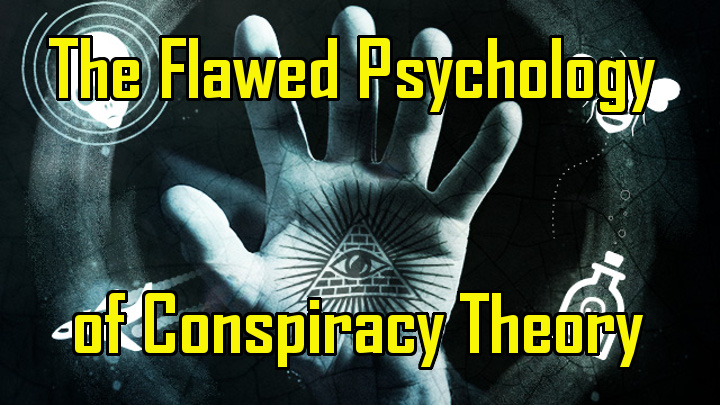
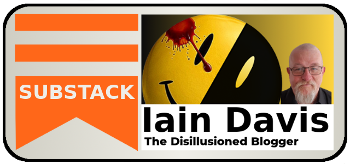

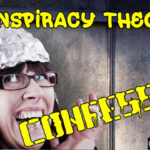
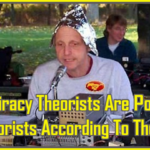


There’s so much to comment on here, but let’s start with the The University of Kent article by Wood, Douglas & Sutton, 2012:
“In the Diana study, the psychologists claimed that agreeing to some degree both that Diana was murdered and that she faked her own death showed that conspiracy theorists could believe two mutually exclusive “conspiracies” at the same time.”
Except that NO-ONE in the study believed both of these two mutually exclusive conspiracy theories. The fact that hardly anyone believed either theory led automatically to an apparent high correlation between belief in both, an elementary statistical mistake which, made by a 1st year student, would lead to an F grade or zero out of twenty. Yet professors Wood and Douglas have refused to retract their paper or issue a correction, despite the fact that it’s based on an outright lie.
Professor Karen Douglas went on to co-author a paper with Joe Uscinski on Climate Change Conspiracy Theories for the Oxford University Press Encyclopaedia of Climate Science. It’s full of lies, one of them being reliance on a retracted paper which happens to accuse me personally of being a conspiracy theorist with paranoid tendencies, incapable of rational thought. And the sole evidence that conspiracy theorists like me are incapable of rational thought is a reference to – Wood, Douglas & Sutton, 2012.
These people are not slightly deluded ideologues pushing dodgy theories. They are outright frauds, liars and charlatans. Many of those quoted by you (Woods, Douglas Swami) have been promoted to full professors since their nonsense has been revealed.
There is a vast cottage industry in academia devoted to weaponising “conspiracy theorising” as a means of delegitimising scepticism of official policy. At Cambridge University, an initially innocuous investigation of conspiracy theorising has been converted into an attack on Trump, Brexit, and “populism.” I’ve written about it extensively, e.g. here
https://cliscep.com/2019/03/08/the-great-climate-conspiracy-theory-conspiracy-theory/
The problem lies not in their definition of conspiracy theories as being secret, or their belief that conspiracy theories are necessarily false. (Douglas and Uscinski’s co-author on the OUP article Stephan Lewandowsky believes that conspiracy theorists are still paranoid nutters, even if the conspiracy theories they believe are true.)
The problem is that every academic working on conspiracy theories is financed by government or the EU or some unaccountable charitable foundation. If they’re not liars and charlatans themselves, they cite the work of liars and charlatans, and become complicit. There’s nothing here except a desire to suppress free thinking. Call them out. They won’t sue, because they know we’re right.
Thanks again Geoff. Another excellent article. I’ve booked-marked your site and am delighted you have brought your work to my attention. Great stuff.